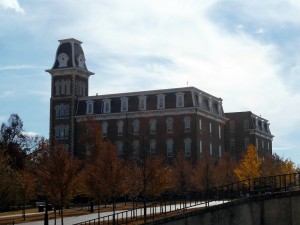Understanding the Amendments to the Fayetteville Ordinance
A Further Analysis of Chapter 119

Overview: On August 20, 2014, the Fayetteville City Council passed asexual-orientation and gender-identity nondiscrimination ordinance (Chapter 119). Proponents of the ordinance added two amendments to the proposal in an effort to alleviate some concerns over the measure’s unintended consequences. The amendments, however, fail to address many of the flaws in the proposal.
Church Property Amendment
Amendment 1: “Nothing in this Chapter shall be construed to require any religious or denominational institution or association to open its tax exempt property or place of worship to any individual or group for any ceremony or meeting, except for any activity or service that is supported in whole or part by public funds.”
Analysis: This amendment partly addresses one of the many ways Proposed Chapter 119 restricts religious liberty in Fayetteville. It generally prevents church property from being used, for example, for a same-sex wedding or reception. However, it fails to address the following:
- Churches still face the threat of prosecution. This amendment does not exempt churches altogether. At best, it exempts church property. Churches can still be forced to employ a gay or transgender person for “secular” job positions (e.g. bookkeeper, receptionist, etc.). Even with this amendment,a church still faces the threat of criminal prosecution simply for wanting to employ people who share and abide by the faith that church proclaims.
- Ministers still face the threat of prosecution, individually. This ordinance affects ministers who officiate weddings or ceremonies for non-church-members, because they are offering a public service. This amendment protects church property, but not the ministers employed by the church. This means ministers could still be forced to perform same-sex ceremonies on non-church property (e.g. a park, private wedding chapel, etc.). This opens ministers to the possibility of prosecution simply for declining to perform a ceremony contradictory their religious convictions.
- Businesspeople are still open to prosecution. Across the nation, florists, bakers, photographers, wedding venue owners, and similar businesspeople have faced litigation and prosecution for declining to take part in same-sex ceremonies. This amendment does not protect religious businesspeople who object to hosting or serving in a same-sex ceremony.
- Private schools are not exempted. This amendment does not protect a private school’s ability to employ people who share its religious views or safeguard any of its other religious liberties.
